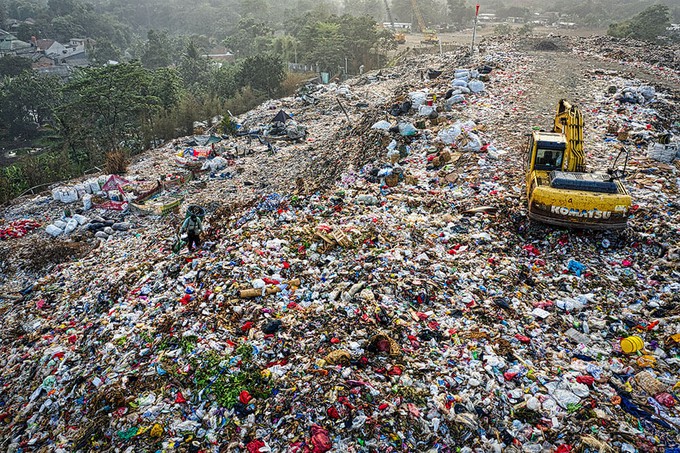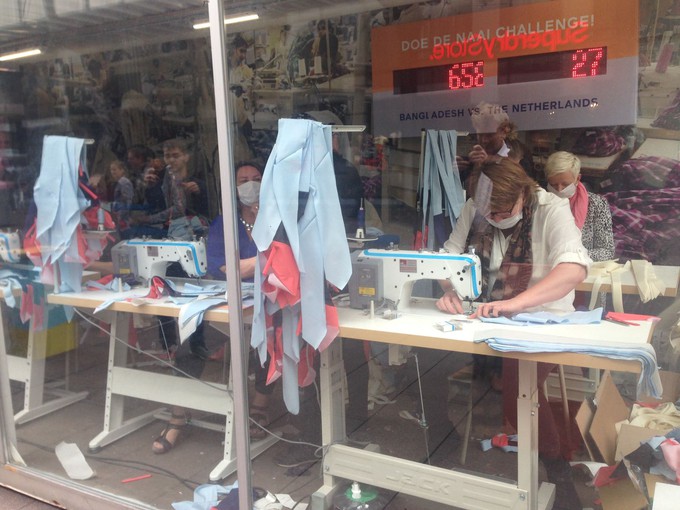- Clothes
- Bags
- Accessories
-
Inspiration
- Shoes
Can Fast Fashion Ever Be Sustainable? (Real Talk)

Words like ‘bio’ and ‘green’ sprinkled on the same online stores that upload thousands of new items every week. Cheap organic cotton clothes marketed as an ‘eco-friendly’ collection. Can fast fashion actually be sustainable, though?
Let’s look at it objectively so that you can make more informed decisions.
What do we mean by ‘fast’ and ‘sustainable’ fashion?
Fast fashion is simply a business model.
- Inspired by the latest trends seen on the catwalk, it’s all about producing new clothes quickly and selling them at the lowest prices. That way, consumers can buy new ones regularly, basically treating them as disposable
- To keep their prices so low, fast fashion brands tend to rely on polluting materials and dodgy production practices like sweatshops
Slow and sustainable fashion, on the other hand, is about:
- Creating and marketing clothes in a way that takes both the environment and humans (and future consequences) into consideration
- It also encourages consumers to buy fewer higher-quality pieces and keep them for years.
3 problems with using ‘fast fashion’ and ‘sustainability’ in the same sentence
More and more fast fashion brands have been talking about sustainability. Sadly, here’s why we don’t think the two can go together.
1. Fast and cheap can’t usually be sustainable

To produce new clothes so quickly and keep their prices that low, fast fashion brands need to save money somewhere.
So, even if a £5 garment includes ‘organic cotton’, it was probably produced in a sweatshop-style factory. Otherwise, the price-tag would be more similar to its sustainable fashion equivalent.
No wonder most fast fashion brands never talk about their supply chain!
2. Overconsumption

Fashion used to be based around four seasonal collections a year. Nowadays, ultra-fast fashion giants (like SHEIN and Boohoo) release thousands of new garments every week.
This entire business model is based on overconsumption.
Don't get us wrong: it’s nice that some garments involve kinder fabrics instead of problematic ones like cotton and polyester.
But if consumers are encouraged to buy them, wear them a couple of times, and then discard them in favour of new, trendy ones? Then fast fashion just can’t be sustainable.
3. Greenwashing & hijacking conversations

Many fast fashion brands use ‘sustainable’ as a buzzword because they’ve realised more and more consumers care about it… but they don’t actually make their production sustainable.
Basically, they’re greenwashing it:
- They often use vague and unquantifiable terms (like ‘green’) instead of third-party certifications and transparent supply chains
- They draw attention to positive-sounding features (e.g. ‘eco-friendly packaging’) but leave out that those clothes were made by exploited workers
- They trick consumers into buying ‘conscious’ collections, even though that means supporting a brand that relies on overconsumption and hides a dodgy supply chain
By doing this, these brands have also been hijacking the conversation on sustainability. Thanks to their bigger budgets, they’re making it impossible for most ethical brands to compete with them.
So, can fast fashion ever be made sustainable?
No, we don’t believe fast fashion can ever be made sustainable due to the nature of its business model.

To make fashion sustainable, brands should move towards a circular approach:
- Using the most eco-friendly resources and production practices
- Designing timeless and durable items
- Marketing them as such
- Focusing on upcycling and recycling instead of adding to the 92 million tonnes of textile waste generated every year
And this is the exact opposite of fast fashion (= fast, cheap solutions, and marketed as disposable).
Using one more eco-friendly material or the term ‘green’ isn’t enough to make fast fashion sustainable.
Be part of the change! Say no to fast fashion, and start receiving our tips and inspiration to make more ethical clothing choices.
Share our story
Related articles
The Devil Wears… Ultra Fast Fashion. Do You?
Sweatshops, environmental damage, and a negative effect on young consumers’ mental health: meet ultra fast fashion and its sinful consequences.
How to Ditch Fast Fashion & Switch to Ethical Clothes: 10 Tips
Ready to take the first step towards a more sustainable wardrobe? Here are some practical tips to ditch fast fashion and discover ethical alternatives.
Problems with Fast Fashion: Cheap Clothes, High Hidden Costs
From child labour to toxic dyes, there’s a high hidden cost behind cheap labels. Check out the problems with fast fashion and discover a sustainable solution.
Project Cece is a platform that collects ethical fashion from vetted brands and shops in one place. Browse ethical fashion for women and men and find items that fit your style, budget and values!


